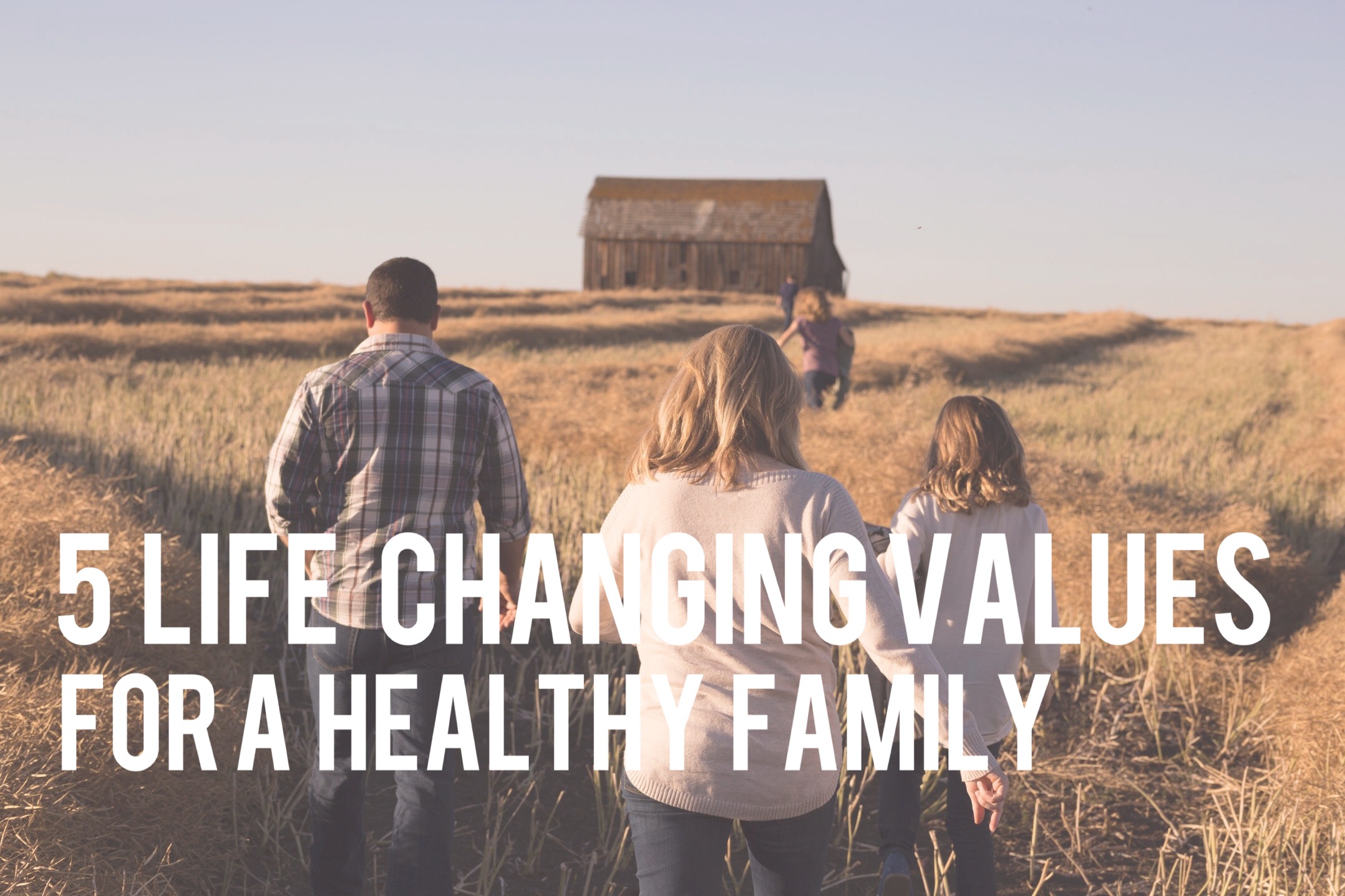5 Life Changing Values for a Healthy Family
When parents call our office in Fort Collins to schedule counseling or a psychological evaluation for their children, they often feel helpless, frustrated, confused, and at the end of themselves. While their focus is on the health and well being of the children experiencing certain challenges, their own health and the health of their family life gets lost or put off. But more often than not, the change a child needs begins with their family.
Our practice works to maintain open communication between our clinicians and our client’s parents. Our counselors schedule regular “check-ins” with parents as is appropriate for on-going support for their children. For the clients seeing us for psychological evaluations, we usually schedule 1/3rd of the allotted time for a child evaluation for direct conversations and support with their parents.
There are plenty ideas and goals for parenting specific types of challenging children, especially children with ADHD, autism, anxiety, or depression. But what if the goal was different? What if you made changes that benefit the whole family? And what if these changes automatically help the members of your family experiencing challenges? So, instead of providing tips for parenting children with specific issues, here are 5 life changing values that will bring health and happiness for your entire family:
1. When You’re Calm, They’re Calm
Children pick up on everything. The emotions they pick up affect them far more deeply and profoundly than it does adults. If you find yourself anxious, fearful, angry, or stressed, most likely your child has noticed it too. Whenever a child experiences a parent’s anxiety, it causes a reflexive response. Whether that is “fight or flight,” hoarding, repression, or obsessive behaviors, children will react to and learn from their parent’s anxiety. If you are able to separate yourself from the moment and come down from those feelings of anxiety, your children will regulate themselves to you.
2. Rest and Simplicity Are a Top Priority
If your world feels chaotic and full of activity, most likely your child feels the same way. When there is constant activity and drive, children have a greater difficulty switching to times of rest, they struggle with sleep, and struggle with focus and attention.
Have you ever had your child simply collapse with exhaustion in the middle of an errand? Or has your child had an emotional breakdown at the end of a long day? These are moments when children have pushed themselves to their limits of good behavior, positivity, and energy. They are done.
If you schedule regular and purposeful downtime for yourself and your children, you will find that their behaviors and mood swings start to even out. Also, if you simplify the schedules and activities of your family, family life becomes easier. You may not have everything completed at the end of the day, and your children may not participate in every extracurricular activity, but you will have your child.
3. Emotions Aren’t Facts
Remember this when feelings are strong, and conflict is hot, or when passivity has glued you to the couch. If you give yourself and your family members the space to think, choices and actions turn out for the better. Few people make good choices when they’re furious. And few people do the necessary work when their emotions tell them to give in. With time, we can learn to see the difference between what we feel in the moment, what we value, and what we know to be true. And when we see things clearly, we can make better choices.
4. Everyone Is On The Same Team
No matter how it feels, what’s been said, or how your family has related in the past, everyone has to be on the same team. This means that arguments don’t end with one person being right and the other being wrong. Rather they end with clarity as to what would be best for the family. Relationships will always be challenging. But the challenges become harder when people have opposing agendas and desires. If you take the time to figure out what core values you and your family believe, decisions become easier. Also, if you work toward having everyone on the same page when it comes to the big things, the smaller things get worked out.
Now, the idea of having everyone on the same page can be difficult in blended families, co-parenting after divorce, long distance parenting, and other unique arrangements. So, have less on the page and simplify where you can. Figure out what are the most important issues everyone can agree on and stick with them.
5. Help Is Always Available When You Ask
You’re never as alone as you may think you are. All it takes is reaching out honestly and finding the right support. Some parents look into counseling for the whole family. Other parents make space for each member of the family to have some kind support. The risk is taking the first step and finding help. Whether that’s reaching out to coworkers, social networks, googling, or having conversations with family and friends, support and help is often available when you need it.
The Colorado Center for Assessment & Counseling provides support for children and parents in need of counseling and therapy. We also offer psychological evaluations for adults and children. Please reach out to us to learn how our services can be a help, or schedule an appointment. You can reach us at (970) 889-8204 or contact@coloradocac.com.

